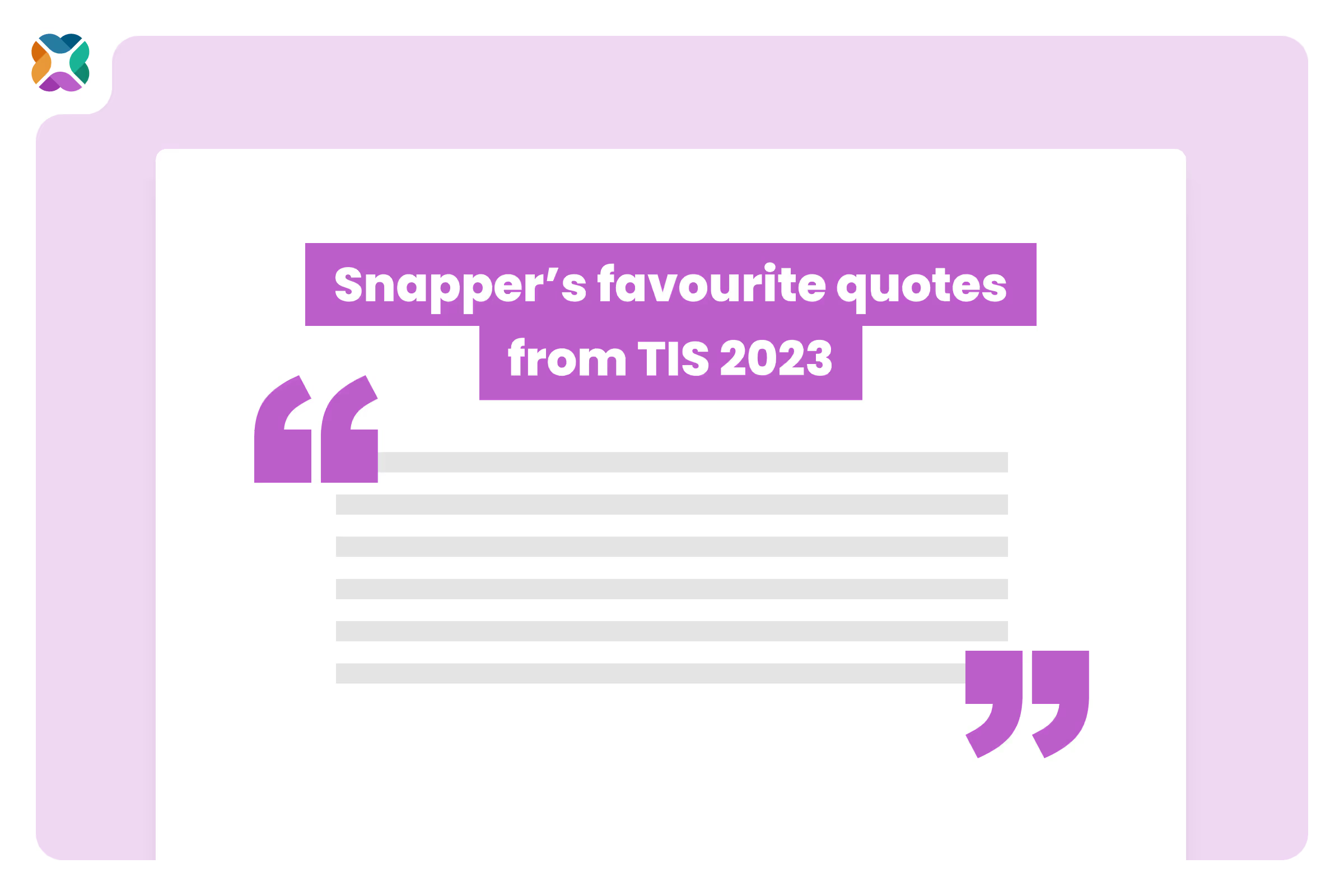Transport Innovation Summit 2023: Our favourite quotes
The 2023 Transport Innovation Summit gathered brilliant transport minds from the UK and Europe. There was so much to learn, so we’ve picked some of our favourite quotes from the event.
The 2023 Transport Innovation Summit gathered brilliant transport minds from the UK and Europe. There was so much to learn, so we’ve picked some of our favourite quotes from the event.

Authorities, operators, and suppliers from the ITS community were in London for two days to share how we’re all working to solve today’s public transit challenges.
Hearing from some genuinely excellent speakers is one of the most exciting aspects of any summit. After two days of wide-ranging conversations covering MaaS, collaboration, and all things transit technology, here are our favourite quotes that stuck with us throughout the event.
“We want to be boringly predictable and deliver on time.”
In a world of endless options and hectic schedules, passengers seek consistency and dependability above all else.
When asked what optimum service means for delivering London’s Elizabeth Line, MTR’s Mike Bagshaw shared a vision of a public service that is so excellent it becomes invisible. “Boringly predictable” services reassure passengers that they can confidently plan their journeys, making their lives easier and contributing to a well-connected and sustainable community. When passengers know they can depend on the service being there when they need it, public transit can emerge as the obvious modal choice.
A seamless, routine passenger experience is the ultimate goal of any public transit network. Perfecting planning and optimisation behind the scenes is an everchanging project challenging networks of all sizes.
“Authorities need to remember that they have power."
Like many aspects of public transit, MaaS is dependent on collaboration and sound data. Creating open systems, interoperable payment solutions, and a shared prioritisation of customer experience through accessible and trustworthy public transit data requires leadership.
West England Combined Authority’s Oliver Coltman urged transit authorities not to forget their power. With their deep understanding of their communities and passengers, authorities are uniquely positioned to craft contracts with operators and suppliers that deliver value to passengers.
In the MaaS context, the industry must mature quickly and work together to understand passengers' needs. The panel explored changing customer behaviour to bring passengers to MaaS, although more needs to be done to bring MaaS to passengers.
“Without joined-up future thinking, these initiatives are destined to fail.”
Who do cities belong to? In the Returning Cities to Their Rightful Owners panel, Celeste Hicks, Adrienne Acioly, and Paul Costello explored the possibilities and challenges of restructuring our cities around communities, not cars.
Rotterdam’s post-WW2 construction has been broadly car-centric, making it a fascinating case study. Transforming a city to make it safer for cyclists, liveable for residents, and bustling for businesses requires layers of change and plenty of learning. Most importantly, it cannot be done alone.
Hearing Rotterdam’s efforts to engage their citizen and align with their needs showed how initiatives in public transit and beyond demand buy-in from stakeholders and communities. These initiatives must begin with a shared vision for the future that aligns passengers and the private and public sectors.
“The golden triangle of transport: cheap, fast, comfortable”
Every time someone leaves their home, they make a decision about their transport mode. Julian Scriven of Brompton Bike Hire shared an excellent and straightforward calculation that goes through every (potential) passenger’s mind: is it cheap? Is it fast? Is it comfortable?
For many people, this decision is made relative to their car. We know an electric bus is more comfortable than a diesel one, but will it be faster than a car? That bike lane might make cycling the cheapest option, but the bus may be more comfortable in the rain.
This concept was a great way to build a customer-centric understanding of achieving a modal shift. Excellent public transit systems require a blend of options that suit different needs at different times. Keeping this golden triangle in mind can help us empathise with passengers and build networks that work for everyone.
Let one of our team show you how we can help improve your transit network with Mosaiq. Set up a comprehensive, personal introduction for you and your team today.

Catch up on the latest Mosaiq news, industry updates, and thoughts from the Snapper Services team.
